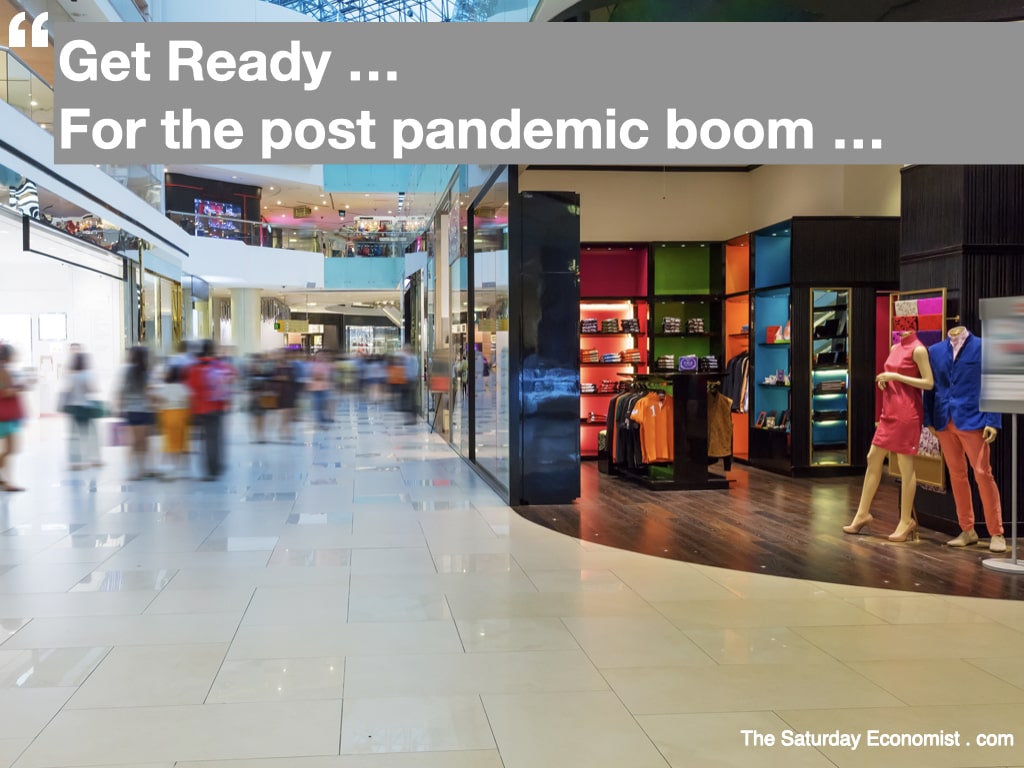|
The IMF now sees a brighter outlook for the world economy. The Bank of England is feeling more optimistic about the UK. The Office For Budget Responsibility forecasts real growth of 11% over the next two years. In nominal terms the UK could grow by over 20% over the next three years, underpinning growth for jobs and business in the medium term.
Thanks to the success of the vaccination program, the pressures of the pandemic are easing, providing a stimulus to growth. Thanks to the approval of President Biden’s spending plan, the American and world economy will benefit from his $1.9 trillion fiscal boost. In the UK, The Governor of the Bank of England is feeling more optimistic about the prospects for the year. Vaccination continues at pace. The slow down in the economy in the first quarter is better than expected. Restaurant bookings are increasing. Domestic holiday reservations are rising. Consumer confidence is on the rise. Business confidence in manufacturing and construction is particularly high. Asked what sort of recovery the UK could expect, Andrew Bailey said "I am now more positive but with a large dose of caution". "We now see upside risks to our January forecast", with some chance the peak in unemployment, may be lower than expected. Boris Johnson’s timetable for recovery, suggests the hospitality sector, could be in full recovery mode from the end of June. According to Andy Haldane Chief Economist, at the Bank of England. The UK economy is like "a coiled spring", set to release lots of financial energy. “Consumer confidence will surge back, the economy will be firing on all cylinders. Success with the vaccination and the easing of lock down, will assist the process,” he said. British households have amassed an astonishing £180 billion of cash apparently. They will be ready to return to the restaurants and book a much needed holiday. They may even take a trip to the cinema. Unemployment actually fell in February to 5%, a modest improvement in the jobs market. Latest data from HMRC confirms that 4.7 million were on furlough at the end of February. Over one million were in the accommodation and food sector. The number of workers furloughed is expected to drop rapidly in the second quarter. In September last year, the total number had dropped to 2.5 million as growth returned. A big bounce back is expected in the leisure sector as pubs, restaurants and hotels reopen for business. According to the latest IHS Markit/CIPS data, business activity across the UK increased in March. The rate of expansion was the fastest for months, The expansion was fueled by a rise in new orders, attributed to a bounce back ahead of easing lock down measures. Stronger consumer confidence and a surge in demand for residential property services also featured. Business expectations for growth, surged to the highest since comparable data were first available in 2012. Employment rose for the first time since the pandemic struck, as firms expanded capacity to meet demand ... Get ready for the post pandemic boom ...
0 Comments
Leave a Reply. |
The Saturday EconomistAuthorJohn Ashcroft publishes the Saturday Economist. Join the mailing list for updates on the UK and World Economy. Archives
July 2024
Categories
All
|
| The Saturday Economist |
The material is based upon information which we consider to be reliable but we do not represent that it is accurate or complete and it should not be relied upon as such. We accept no liability for errors, or omissions of opinion or fact. In particular, no reliance should be placed on the comments on trends in financial markets. The presentation should not be construed as the giving of investment advice.
|
The Saturday Economist, weekly updates on the UK economy.
Sign Up Now! Stay Up To Date! | Privacy Policy | Terms and Conditions | |

 RSS Feed
RSS Feed